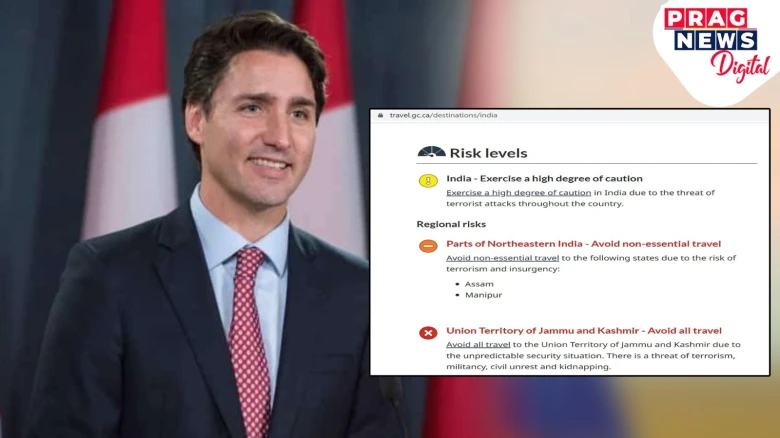Regional
His legacy reminds us of the importance of self-reliance, courage,...

The Canadian government has issued a warning to its citizens against non-essential travel to several states in Northeast India, including...
Digital Desk: In a recent update to its travel advisory, the Canadian government has issued a warning to its citizens against non-essential travel to several states in Northeast India, including Assam and Manipur, due to heightened concerns over terrorism and insurgency. This advisory follows a period of strained relations between Canada and India, triggered by the assassination of prominent Sikh leader and Canadian citizen, Hardeep Singh Nijjar.
Canada's travel advisory also urges its citizens to exercise a high degree of caution when traveling in India, citing a general threat of terrorist attacks nationwide. Specifically, the states of Jammu and Kashmir, Gujarat, Punjab, and Rajasthan are mentioned as areas of concern.

For Jammu and Kashmir, Canadians are advised to avoid all travel due to the unpredictable security situation, which includes threats of terrorism, militancy, civil unrest, and kidnapping. However, the advisory excludes travel to or within the Union Territory of Ladakh.
Additionally, Canada advises against travel within 10 kilometers of the border with Pakistan in the states of Gujarat, Punjab, and Rajasthan. This recommendation is grounded in the unpredictable security environment in these regions, coupled with the presence of landmines and unexploded ordnance.
The diplomatic tension between the two nations escalated with Canada's expulsion of a high-ranking Indian diplomat, citing "credible allegations" of Indian government involvement in Nijjar's assassination. Canada's Foreign Affairs Minister, Mélanie Joly, confirmed the expulsion and emphasized Canada's commitment to uncovering the truth behind Nijjar's killing.
Meanwhile, the Indian Ministry of External Affairs (MEA) has dismissed these allegations as "absurd" and "motivated," further highlighting the complexity of the ongoing diplomatic dispute. As the situation evolves, both nations continue to monitor and address these critical issues affecting their bilateral relations.
Leave A Comment